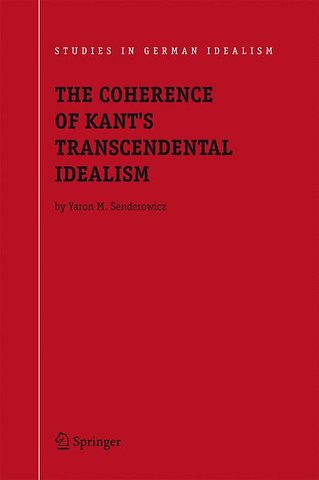The Coherence of Kant's Transcendental Idealism
Paperback Engels 2010 9789048166862Samenvatting
1. Introduction Kant considered the doctrine of transcendental idealism an indisp- sable part of the theory of knowledge presented in the Critique of Pure Reason. My aim in this book is to present a new defense of the coh- ence and plausibility of Kant’s transcendental idealism and its indisp- sability for his theory of knowledge. I will show that the main argument of the Transcendental Aesthetic and the Transcendental Analytic is - fensible independently of some of Kant’s claims which are said to threaten its coherence. I have undertaken an inquiry into the coherence of Kant’s transc- dental idealism for the following reasons. A defense of the coherence of transcendental idealism is required by the existing state of Kantian scholarship. The claim that Kant’s transcendental idealism is incoh- ent has appeared in various forms over the last two centuries. The most powerful and elaborate criticism of Kant’s transcendental idealism is found in Part Four of Strawson’s The Bounds of Sense. Several comm- tators have tried to reestablish its coherence. Although Allison and other commentators have contributed ideas that are valuable for an 1 account of the coherence of Kant’s transcendental idealism, their - guments fall short as a response to the standard objection. Indeed, the claim that Kant’s transcendental idealism is incoherent continues to be the view held by most thinkers. I have limited my goal in this book to establishing the coherence of Kant’s transcendental idealism due to two related reasons.
Specificaties
Lezersrecensies
Inhoudsopgave
Rubrieken
- advisering
- algemeen management
- coaching en trainen
- communicatie en media
- economie
- financieel management
- inkoop en logistiek
- internet en social media
- it-management / ict
- juridisch
- leiderschap
- marketing
- mens en maatschappij
- non-profit
- ondernemen
- organisatiekunde
- personal finance
- personeelsmanagement
- persoonlijke effectiviteit
- projectmanagement
- psychologie
- reclame en verkoop
- strategisch management
- verandermanagement
- werk en loopbaan
